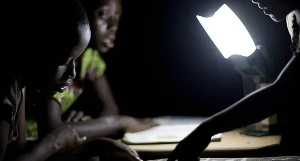 Ghana’s energy sector stands at a crossroads
Ghana’s energy sector stands at a crossroads
As Ghana ushers in a new year, there is growing chatter about the possibility of another electricity supply challenge — the dreaded “dumsor.” This unsettling term, which evokes memories of darkness and economic stagnation, has resurfaced in national conversations.
While the transition from the New Patriotic Party (NPP) to the National Democratic Congress (NDC) administration brought hopes for fresh leadership, questions about the energy sector linger. Are we truly on the brink of another power crisis, or are these fears exaggerated? What actions (or inactions) led us here, and can we chart a sustainable path forward?
Background: A history of Dumsor
For many Ghanaians, the term “dumsor” is synonymous with the rolling blackouts that plagued the nation in the early 2010s. These power outages affected households, disrupted businesses, and severely hindered economic growth. While subsequent governments have taken steps to address the energy deficit, Ghana’s energy sector remains vulnerable, teetering between stability and crisis.
The recent NPP administration touted significant investments in the energy sector, including agreements to stabilise power generation and improve distribution infrastructure. However, critics argue that these efforts focused on short-term fixes rather than addressing systemic issues such as financial mismanagement, inefficiencies in power distribution, and over-reliance on thermal and hydroelectric power.
The current situation: warning signs
Since the start of the year, several indicators have raised alarms:
Debt accumulation: The Ghana Grid Company (GRIDCo) and the Electricity Company of Ghana (ECG) are reportedly grappling with mounting debts, raising concerns about their ability to maintain and expand infrastructure.
Fuel supply challenges: Ghana’s dependence on imported fuel for thermal power generation exposes the sector to global price volatility. Rumours of unpaid bills to fuel suppliers have sparked fears of supply disruptions.
Aging infrastructure: While some plants have been rehabilitated, much of Ghana’s energy infrastructure is old and prone to breakdowns. Recent outages in parts of the country have underscored the fragility of the system.
Policy continuity: The transition of power between administrations often disrupts ongoing projects and policy implementation. Were key projects neglected or delayed during the NPP’s final months?
Critical questions
What did the NPP administration leave undone? Did they adequately address the sector’s pressing financial and infrastructural needs before leaving office? Reports suggest that long-term planning may have taken a back seat to immediate political priorities.
Can the new NDC administration avert a crisis? The NDC now has an opportunity to demonstrate proactive leadership. Will they prioritise continuity in key projects and foster collaboration across political divides to safeguard the energy sector?
Is Ghana too dependent on thermal and hydro sources? Diversification into renewable energy sources, such as solar and wind, has been slow despite abundant potential. What’s holding Ghana back?
Seeking Solutions: What can be done?
Ghana has navigated energy challenges before, and lessons from the past provide a blueprint for action:
Financial restructuring: The government must prioritise clearing debts in the energy sector to restore confidence among suppliers and investors.
Introducing transparency and accountability in financial management is crucial.
Policy continuity: Political transitions should not derail critical projects. Establishing an independent energy authority with the mandate to oversee long-term planning and implementation could mitigate this risk.
Investing in renewables: Diversifying Ghana’s energy mix is no longer optional. Accelerating investment in solar, wind, and other renewable sources will reduce reliance on thermal and hydro sources while enhancing sustainability.
Public-Private Partnerships: Collaborations with private entities can bring much-needed capital and expertise to modernise infrastructure and expand capacity.
The human impact
For small business owners like Ama, a hairdresser in Accra, dumsor means more than flickering lights. It’s the difference between feeding her family or going to bed hungry. For young students, it’s the loss of study hours and academic progress. Ghana’s energy crisis is not just a technical issue; it’s a human one, with real consequences for livelihoods and aspirations.
Conclusion: A call to action
Ghana’s energy sector stands at a crossroads. The specter of dumsor need not become a reality if stakeholders act decisively and collaboratively. The question is not merely about what went wrong in the past but what can be done now to secure the future.
For the sake of every Ghanaian household and business, we must demand accountability and innovation from our leaders. The time to act is now — before the lights go out again.